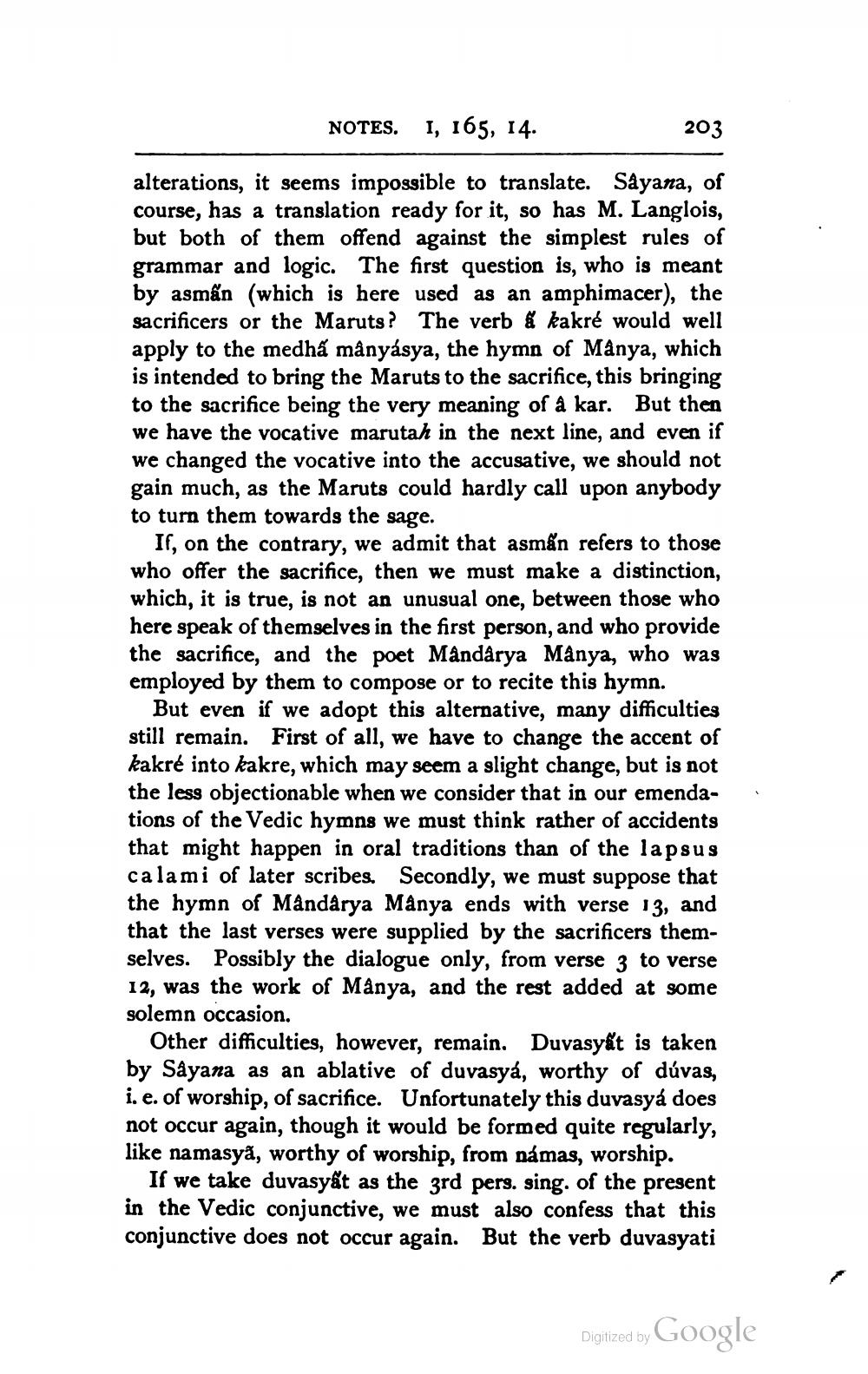________________
NOTES. I, 165, 14.
203
alterations, it seems impossible to translate. Sayana, of course, has a translation ready for it, so has M. Langlois, but both of them offend against the simplest rules of grammar and logic. The first question is, who is meant by asmấn (which is here used as an amphimacer), the sacrificers or the Maruts? The verb & kakré would well apply to the medhã mânyásya, the hymn of Manya, which is intended to bring the Maruts to the sacrifice, this bringing to the sacrifice being the very meaning of a kar. But then we have the vocative marutah in the next line, and even if we changed the vocative into the accusative, we should not gain much, as the Maruts could hardly call upon anybody to turn them towards the sage.
If, on the contrary, we admit that asmán refers to those who offer the sacrifice, then we must make a distinction, which, it is true, is not an unusual one, between those who here speak of themselves in the first person, and who provide the sacrifice, and the poet Måndarya Mânya, who was employed by them to compose or to recite this hymn.
But even if we adopt this alternative, many difficulties still remain. First of all, we have to change the accent of kakré into kakre, which may seem a slight change, but is not the less objectionable when we consider that in our emendations of the Vedic hymns we must think rather of accidents that might happen in oral traditions than of the lapsus calami of later scribes. Secondly, we must suppose that the hymn of Måndarya Manya ends with verse 13, and that the last verses were supplied by the sacrificers themselves. Possibly the dialogue only, from verse 3 to verse 12, was the work of Manya, and the rest added at some solemn occasion.
Other difficulties, however, remain. Duvasyát is taken by Sayana as an ablative of duvasya, worthy of dúvas, i. e. of worship, of sacrifice. Unfortunately this duvasya does not occur again, though it would be formed quite regularly, like namasya, worthy of worship, from námas, worship.
If we take duvasyât as the 3rd pers. sing. of the present in the Vedic conjunctive, we must also confess that this conjunctive does not occur again. But the verb duvasyati
Digitized by
Digitized by Google




